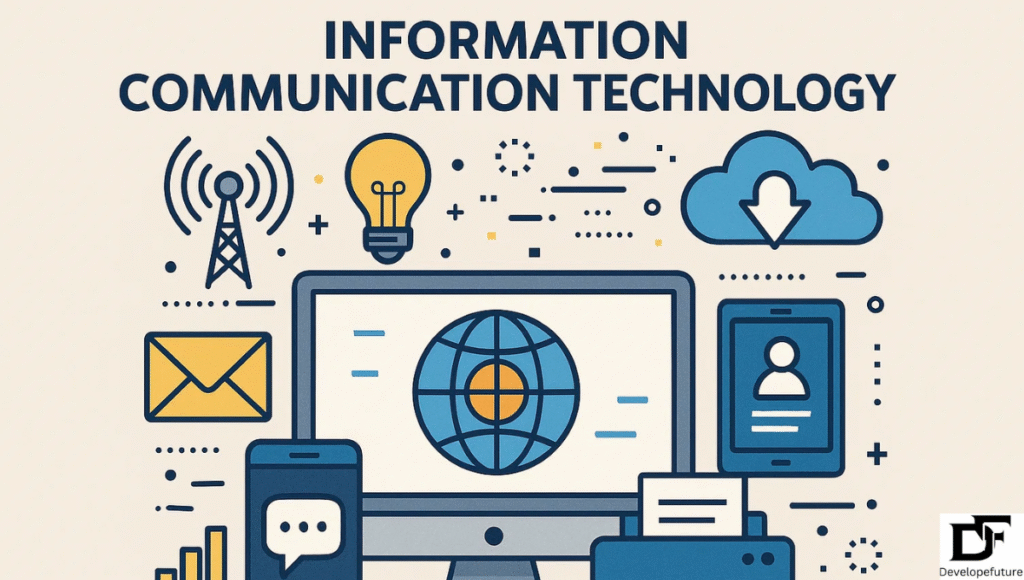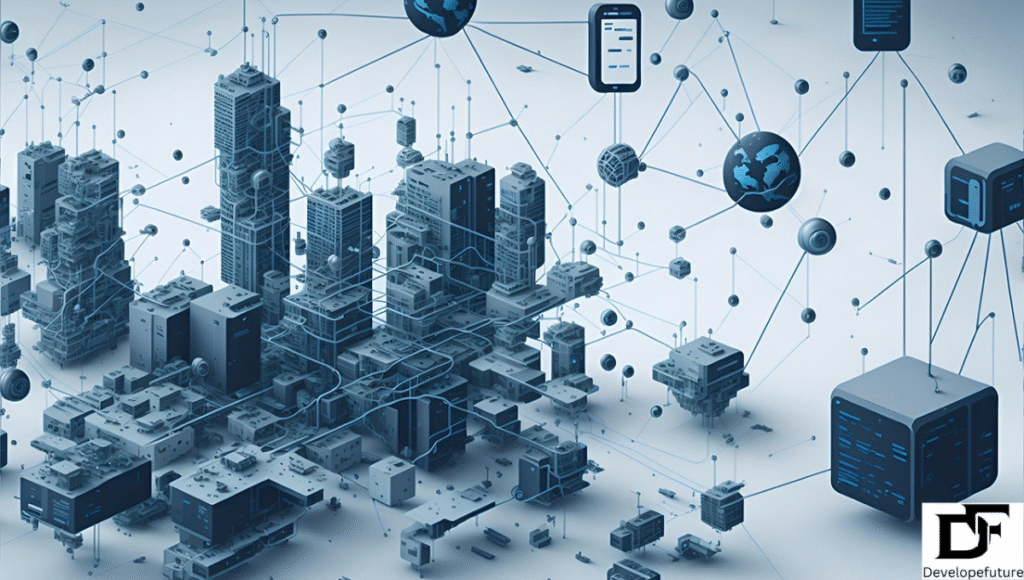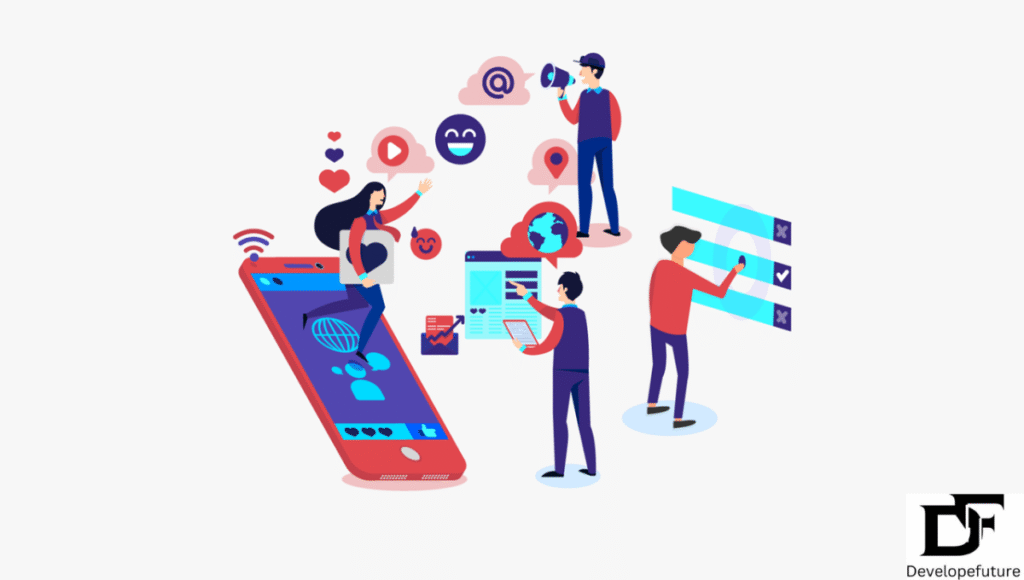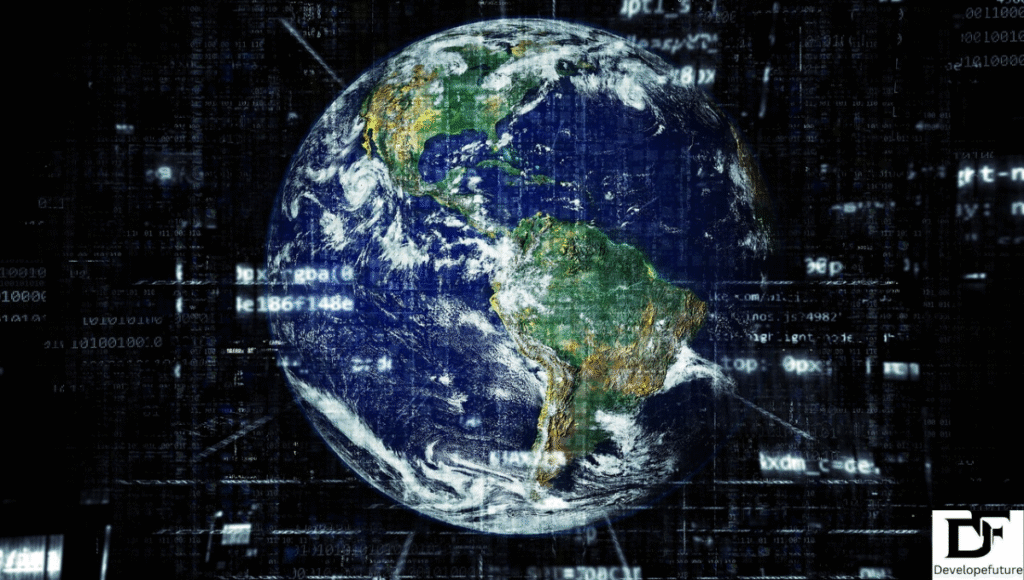Information and Communication Technology (ICT) is a broad term. That encompasses the integration of digital technologies to facilitate communication. It works on information sharing and problem-solving. Information Communication Technology combines traditional communication systems. Modern computing technologies enable faster and more efficient interaction across various fields. From the internet to mobile devices and cloud computing. Information Communication Technology has transformed how people live, work, and connect globally.
The meaning of ICT goes beyond hardware and software. It represents a fundamental shift in how information is generated, stored, and shared. It connects individuals, businesses, and governments through digital platforms, fostering collaboration and innovation. Information and Communication Technology has become an indispensable part of daily life. It is influencing everything from education and healthcare to entertainment and commerce. Information and Communication Technology is shaping the very foundation of modern society.
Table of Contents
Defining Information Communication Technology
Information and Communication Technology can be defined as the use of electronic devices. Information Communication Technology can use systems and networks to access, manage, and transmit data. It includes technologies such as computers, smartphones, servers, and the internet, which are used to enhance communication and streamline processes. Information Communication Technology makes it possible to share ideas, conduct business, and deliver services on a scale. That was unimaginable decades ago.
Information Communication Technology involves three essential functions: processing information, facilitating communication, and supporting decision-making. Whether through email, video conferencing, or data analytics. Information Communication Technology provides the infrastructure necessary for individuals and organizations to stay connected. It is an evolving discipline. That continuously adapts to the demands of a digital world. Information Communication Technology is reshaping how we approach challenges and opportunities.

The Evolution of ICT
The evolution of Information Communication Technology can be traced back to the invention of the telegraph and telephone in the 19th century. This revolutionized communication by allowing long-distance interaction. The development of radio and television in the early 20th century further expanded the reach of information. With the invention of computers and the internet in the latter half of the century. Information Communication Technology underwent a rapid transformation that laid the foundation for the digital age.
In recent decades, ICT has evolved from standalone computers to interconnected global networks. Information Communication Technology powered by cloud computing, artificial intelligence, and mobile technologies. The rise of social media platforms, e-commerce, and digital services highlights how far ICT has progressed. Today, it continues to evolve at a rapid pace. Information Communication Technology is shaping future innovations. Such as smart cities, the Internet of Things (IoT), and virtual reality.
What are the Components of ICT?
The components of ICT can be divided into hardware, software, networks, and people. Hardware includes devices such as computers, servers, routers, and mobile phones. These serve as the physical foundation. Software consists of applications and operating systems. That allows us to perform specific tasks. It ranges from word processing to managing complex databases. Networks connect these devices, enabling communication and data transfer across the globe.
Equally important are the people who use ICT systems to solve problems and achieve goals. Without skilled users and ICT professionals, technology alone cannot deliver value. Data management, cybersecurity, and user training are vital components. That ensures ICT functions effectively. These elements create a robust ecosystem that supports digital interaction and economic growth.

Why ICT is Important for Businesses
ICT is a driving force in modern business. It is providing organizations with the tools to operate efficiently and competitively. Through ICT, companies can automate processes. It can reduce costs and improve decision-making with real-time data analysis. Customer relationship management (CRM) systems, enterprise resource planning (ERP) software. And cloud solutions have revolutionized the way businesses function.
Moreover, ICT enhances communication within organizations and with customers. Email, video conferencing, and collaborative platforms like Microsoft Teams or Slack improve productivity and teamwork. Businesses also use Information Communication Technology for digital marketing. E-commerce and online customer support, enabling them to expand globally. And remain competitive in a rapidly changing marketplace.
Applications of ICT in Everyday Life
Information Communication Technology has become an inseparable part of daily life. It is influencing everything from education to entertainment. In education, ICT provides e-learning platforms. It provides virtual classrooms. And online resources, making knowledge accessible worldwide. Healthcare systems also rely on ICT for telemedicine. Electronic health records and advanced diagnostic tools, improving patient care and efficiency.
In personal life, ICT powers social media. Online shopping and streaming services are easy to avail. Which shapes how people interact and spend their leisure time. Banking has also been transformed by ICT through mobile payments. It provides online banking and digital wallets. Whether for work or personal convenience, ICT applications are everywhere. It is streamlining daily tasks and connecting people across distances.

Advantages of ICT
One of the most significant advantages of ICT is its ability to improve efficiency and productivity. Automated systems, cloud storage, and digital communication tools save time. and our resources, allowing individuals and organizations to focus on innovation. ICT also improves access to information. Information Communication Technology empowering people to learn new skills. And make informed decisions quickly.
Additionally, ICT fosters global connectivity and collaboration. People can work remotely. Share ideas across borders. And participate in international markets with ease. By bridging communication gaps, ICT supports cultural exchange. It works for business expansion. International cooperation making the world more interconnected and accessible.
Challenges ICT Creates
Despite its benefits, ICT also presents challenges. Cybersecurity threats, including hacking, data breaches, and identity theft, remain significant concerns for individuals and organizations. As dependence on digital platforms grows, safeguarding sensitive information has become increasingly critical. Additionally, technological dependence raises issues of privacy and digital addiction.
Another challenge lies in the unequal access to ICT resources. Not all regions or individuals have reliable internet connections or advanced devices. For creating a disparity in opportunities. Moreover, the rapid pace of technological change can overwhelm organizations. It is requiring constant updates and investments in infrastructure and training. These challenges highlight the need for responsible use and regulation of ICT.

ICT, the Digital Age, and the Digital Divide
Information Communication Technology has fueled the digital age. Where access to information and technology defines economic and social progress. The digital divide, however, highlights the unequal distribution of ICT resources. Wealthier nations and urban areas often enjoy advanced digital infrastructure. While developing regions struggle with limited access. This gap affects education, healthcare, and employment opportunities.
Bridging the digital divide requires investments in infrastructure. It offers affordable internet access, and digital literacy programs. Governments and organizations worldwide are working to close this gap by expanding connectivity . And promoting inclusive policies. Ensuring fair access to ICT. That is essential for fostering global progress and reducing inequality.
The Impact of Artificial Intelligence on ICT
Artificial intelligence (AI) is revolutionizing ICT by enhancing its capabilities and applications. AI-powered algorithms improve data analysis. Also cybersecurity, automation, that makes ICT systems more efficient and intelligent. Virtual assistants like Siri and Alexa, predictive analytics. And machine learning models are transforming how people interact with technology.
In businesses, AI enhances customer service through chatbots. It optimizes supply chains and enables predictive maintenance. In healthcare, AI supports early disease detection and personalized treatment. As AI continues to advance. Its integration with Information Communication Technology will unlock new possibilities. It is reshaping industries and redefining human-technology interaction.

The Role of ICT in Development
ICT plays a pivotal role in national and global development. It enables governments to deliver public services more efficiently. Such as e-governance platforms that improve transparency and accountability. Education systems benefit from digital learning tools. While healthcare is enhanced through telemedicine and data-driven research.
In developing countries, ICT creates opportunities for economic growth. It is connecting small businesses to global markets. And providing digital banking solutions for underserved communities. International organizations emphasize the role of ICT in achieving sustainable development goals. As it fosters innovation, reduces poverty, and promotes social inclusion.
ICT in the Future
The future of ICT promises even greater transformation with emerging technologies. The Internet of Things (IoT), 5G networks and quantum computing will redefine connectivity and data processing. Smart cities, autonomous vehicles, and immersive virtual experiences are a few of the innovations expected to emerge.
As ICT evolves, ethical considerations and sustainability will play a vital role. Responsible AI use, green technologies, and equitable access will shape the future landscape. Information Communication Technology will remain a cornerstone of global progress driving innovation. While addressing challenges to create a more connected, intelligent, and inclusive world.
FAQ’s
What is the main purpose of ICT?
The main purpose of ICT is to facilitate communication. It improves access to information and supports decision-making through digital technologies.
How does ICT affect education?
ICT enhances education by providing e-learning platforms. It provides virtual classrooms and digital resources, making learning more accessible and interactive.
What are examples of ICT applications in daily life?
Examples include online banking, social media, e-commerce, telemedicine, and streaming services.
What are the risks of using ICT?
Risks include cybersecurity threats, privacy concerns, digital addiction, and unequal access to technology.
How will ICT evolve in the future?
ICT will evolve through advancements like 5G, AI integration, quantum computing, and IoT. It creates smarter, more connected societies.
Conclusion
Information Communication Technology has become the backbone of modern society. It is influencing every aspect of daily life, business, and global development. Its ability to connect people, improve efficiency, and foster innovation. Makes it an indispensable tool in the digital age. Challenges such as cybersecurity threats and the digital divide must be addressed to ensure its benefits are shared equitably.
Looking ahead, ICT will continue to evolve. Emerging technologies and human ingenuity drive it by embracing innovation. While promoting responsible use. ICT can pave the way for a more inclusive, sustainable, and connected future.




